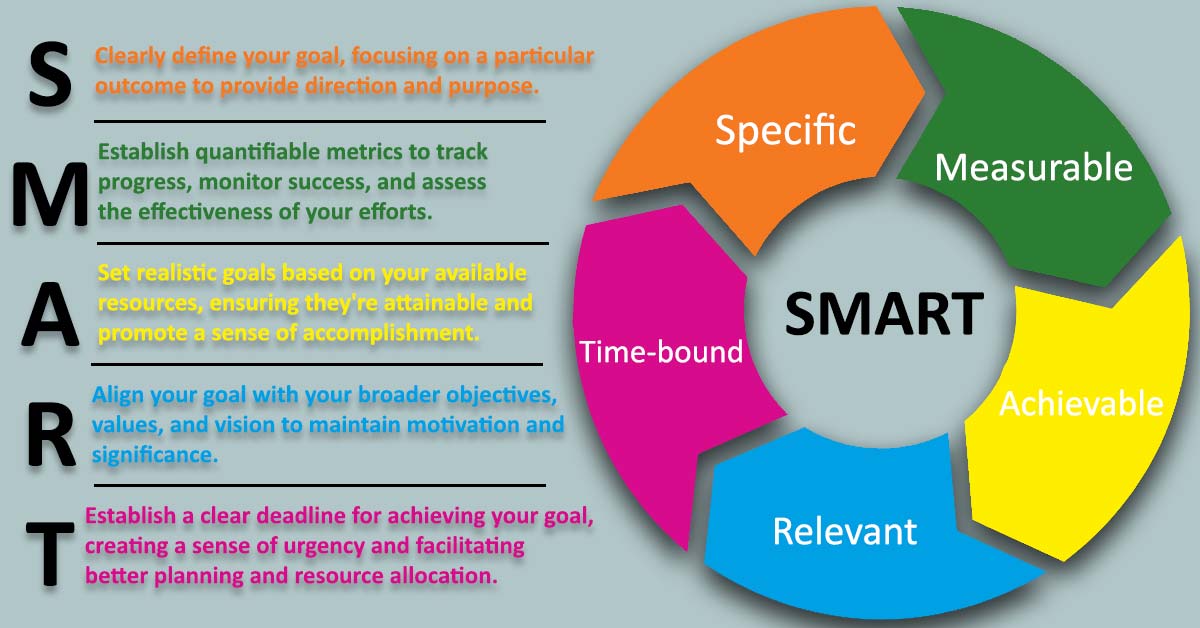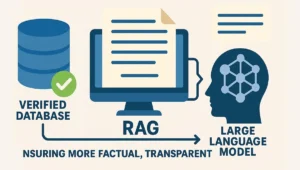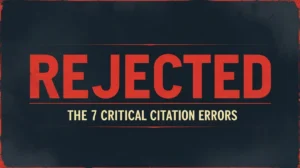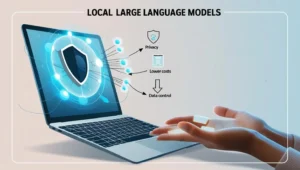As a researcher, your time is precious, and it’s essential to manage it effectively to make the most of your research potential. Research time management skills enable researchers to plan, prioritize, and execute tasks efficiently, increasing productivity and research success.
Effective research time management is a critical skill for researchers to balance their workload and succeed in their academic careers. This article provides a comprehensive guide on research time management tips for busy students, addressing essential strategies such as goal setting, planning, delegating tasks, and tracking progress. By implementing these time-saving techniques, researchers can enhance their productivity, maintain work-life balance, and make significant strides in their research objectives.
Dive deeper into this transformative international at Researchly now.
Table of Contents
1. The Importance of Research Time Management
Effective time management is crucial for researchers due to their work’s unique challenges and demands. Research involves managing multiple projects, meeting deadlines, and staying updated with the latest developments in their field. Poor time management can lead to missed opportunities, stress, and subpar research output.
Benefits of Effective Research Time Management
- Enhanced productivity and efficiency
- Better work-life balance
- Improved focus and concentration
- Reduced stress and anxiety
- Greater research output and impact
By mastering research time management, researchers can maximize their research potential and achieve their professional goals more efficiently. In the following sections, we’ll explore various research time management strategies, techniques, and tools specifically tailored to researchers’ needs.
2. Set Clear Goals and Prioritize Tasks for Effective Research Time Management
Define Your Research Goals
Before you begin, establish clear research goals and objectives to provide direction and focus. Well-defined goals help you make informed decisions about how to manage your time and prioritize tasks. When setting goals, use the SMART criteria: Specific, Measurable, Achievable, Relevant, and Time-bound.
Prioritize Tasks Using the Eisenhower Matrix
The Eisenhower Matrix is a powerful tool for prioritizing tasks based on urgency and importance. Categorize tasks into four quadrants:
- Quadrant 1: Urgent and Important – Complete these tasks first.
- Quadrant 2: Important but Not Urgent – Schedule time to work on these tasks in your research time management plan.
- Quadrant 3: Urgent but Not Important – Delegate or minimize time spent on these tasks.
- Quadrant 4: Not Urgent and Not Important – Eliminate or postpone these tasks.
Tips for Effective Goal Setting and Prioritization
- Break down large goals into smaller, manageable tasks.
- Regularly review and adjust your goals and priorities to optimize your research time management.
- Use a task management system or app to track your progress.
- Focus on high-impact tasks that contribute directly to your research objectives.
- Be flexible and adapt your priorities as needed to ensure effective research time management.
By setting clear goals and prioritizing tasks, researchers can focus their time and energy on the most critical aspects of their work, ultimately leading to greater success and productivity.
3. Planning and Scheduling Tips for Researchers
Create a Research Plan and Schedule
Develop a detailed research plan that outlines the steps needed to achieve your research goals. Include key milestones, deadlines, and estimated timeframes for each task. Once you have a plan, create a schedule that allocates time for each task based on its priority and urgency.
Use Time Blocking for Effective Scheduling
Time blocking involves allocating specific time slots in your schedule for focused work on particular tasks. This technique helps you stay organized, minimize distractions, and ensure you make progress on important tasks.
- Block time for deep work: Set aside uninterrupted time for cognitively demanding tasks, such as data analysis or writing.
- Schedule breaks: Include regular breaks to prevent burnout and maintain focus.
- Adjust time blocks as needed: Be flexible and modify your schedule based on your progress and priorities.
Tools for Planning and Scheduling
- Digital calendars: Google Calendar or Outlook Calendar for scheduling tasks and setting reminders.
- Task management apps: Todoist, Trello, or Asana for organizing and tracking tasks.
- Project management software: Microsoft Project or Basecamp for complex projects with multiple stakeholders.
By implementing these planning and scheduling strategies, researchers can better manage their time, maintain focus, and progress steadily toward their research objectives.
4. The Power of Productivity Tools in Research Time Management
Task Management Apps
Task management apps help you organize, prioritize, and track your tasks, ensuring that you stay on top of your responsibilities and meet deadlines. Popular options include:
- Todoist: A user-friendly app with features like task sorting, reminders, and collaboration tools.
- Trello: A visual task management tool that uses a Kanban-style board to organize tasks into different stages.
- Asana: A powerful app with project dashboards, task assignments, and team communication features.
Project Management Software
For more complex projects involving multiple team members and tasks, project management software can help you manage resources, track progress, and meet deadlines. Consider these popular choices:
- Microsoft Project: A robust project management tool with features like Gantt charts, resource management, and reporting.
- Basecamp: A user-friendly platform for task management, team collaboration, and file sharing.
- ClickUp: A versatile app offering task management, time tracking, and project planning features.
Note-taking and Organization Tools
Efficient note-taking and organization are essential for researchers to manage information and ideas. These tools can help:
- Evernote: A popular note-taking app with syncing across devices and robust search capabilities.
- OneNote: Microsoft’s digital notebook with features like section tabs and collaborative editing.
- Zotero: A citation management tool that helps you organize and share research sources.
Leveraging these productivity tools can streamline your workflows, enhance collaboration, and ultimately boost your research productivity and efficiency.
Utilizing Research Tools and Software for Effective Time Management
To make the most of your research time, it’s important to leverage available tools and software. These resources can help streamline various aspects of the research process, allowing you to allocate your time more efficiently:
- Search engines and databases: These tools help researchers find relevant scholarly articles, books, and other sources of information. Some popular academic search engines include Google Scholar, JSTOR, and PubMed.
- Reference management software: These tools help researchers collect, organize, and cite sources. Some popular reference management software programs include Zotero, Mendeley, and EndNote.
- Statistical analysis software: These tools help researchers analyze quantitative data. Some popular statistical analysis software programs include SPSS, R, and Stata.
- Data visualization software: These tools help researchers create charts, graphs, and other visual representations of their data. Some popular data visualization software programs include Excel, Tableau, and Python.
- Collaboration tools: These tools help researchers share information and work together on projects. Some popular collaboration tools include Slack, Microsoft Teams, and Google Drive.
By strategically incorporating these tools and software into your research workflow, you can save time and increase productivity.
5. Overcoming Procrastination: Tips for Staying Focused and Motivated
Understand Why You Procrastinate
Identifying the reasons behind your procrastination is the first step towards overcoming it. Common causes of procrastination include:
• Perfectionism
• Fear of failure
• Lack of clarity or structure
• Difficulty making decisions
• Distractions
Strategies for Overcoming Procrastination
- Break tasks into smaller chunks: Make tasks more manageable by dividing them into smaller steps.
- Set clear goals and deadlines: Create a sense of urgency and accountability.
- Eliminate distractions: Create a focused work environment.
- Practice self-compassion: Be kind to yourself and avoid self-criticism.
- Reward yourself for progress: Celebrate small wins to maintain motivation.
Motivation Techniques for Researchers
- Focus on your “why”: Remind yourself of the reasons behind your research and its potential impact.
- Visualize success: Imagine the satisfaction of completing tasks and achieving your goals.
- Use positive self-talk: Encourage yourself with affirmative statements and affirmations.
- Seek support: Share your goals with a mentor or colleague who can provide encouragement and accountability.
By understanding the root causes of procrastination and adopting effective strategies, researchers can overcome this common obstacle and maintain focus and motivation throughout their work.
6. Time Management Techniques for Researchers: Pomodoro Technique, Time Blocking, and More
Pomodoro Technique: A Time Management Method
The Pomodoro Technique is a popular time management method that helps improve focus and productivity by breaking work into intervals, traditionally 25 minutes in length, separated by short breaks.
- Set a timer for 25 minutes: Work on a single task with undivided attention.
- Take a 5-minute break: Relax, stretch, or do a short activity.
- Repeat Pomodoros: Complete three more Pomodoros, then take a longer, 15-30 minute break.
Time Blocking: Scheduling Your Day in Blocks
Time blocking involves allocating specific time slots in your schedule for focused work on particular tasks. This technique helps you stay organized, minimizes distractions, and ensures you make progress on important tasks.
- Identify your most important tasks: Prioritize tasks that contribute directly to your research goals.
- Block time for deep work: Allocate uninterrupted time for cognitively demanding tasks.
- Schedule breaks: Include regular breaks to prevent burnout and maintain focus.
Other Time Management Techniques for Researchers
- Eat the Frog: Tackle the most challenging or unpleasant task first to gain momentum and motivation.
- The 2-Minute Rule: If a task can be completed in under 2 minutes, do it immediately.
- The 80/20 Rule (Pareto Principle): Focus on the 20% of tasks that produce 80% of the results.
By implementing these time management techniques, researchers can optimize their productivity, maintain focus, and effectively manage their tasks and projects.
7. Boost Productivity with Effective Delegation and Outsourcing
Benefits of Delegation and Outsourcing
Delegating tasks to team members or outsourcing them to external experts can help researchers manage workloads, save time, and increase productivity. Key benefits include:
- Reduced workload and stress
- Improved efficiency and focus
- Access to specialized skills and expertise
- Faster turnaround times
Identify Tasks to Delegate or Outsource
When deciding which tasks to delegate or outsource, consider the following factors:
- Time-consuming tasks: Routine administrative or repetitive tasks can be delegated to save time.
- Skills and expertise: Identify areas where team members or external experts possess stronger skills.
- Cost efficiency: Determine whether outsourcing specific tasks is more cost-effective than handling them in-house.
Best Practices for Effective Delegation and Outsourcing
- Clearly define tasks and expectations: Communicate project objectives, deadlines, and quality standards.
- Provide necessary resources: Ensure that team members or external experts have the necessary information and tools to complete tasks effectively.
- Monitor progress and maintain open communication: Regularly check on task completion, provide feedback, and address any challenges.
- Evaluate outcomes and refine processes: Assess the effectiveness of delegation and outsourcing efforts, and implement improvements as needed.
By employing effective delegation and outsourcing strategies, researchers can enhance productivity, reduce workload, and focus on their core competencies and research goals.
8. Achieve Work-Life Balance as a Researcher: Self-Care Strategies
Importance of Work-Life Balance for Researchers
Maintaining a healthy work-life balance is essential for researchers to prevent burnout, improve well-being, and enhance productivity. Ignoring personal needs can negatively impact mental health, relationships, and overall job satisfaction.
Self-Care Strategies for Researchers
- Practice mindfulness and stress-reduction techniques: Meditation, yoga, or deep breathing exercises can help manage stress and improve focus.
- Prioritize physical health: Regular exercise, a balanced diet, and adequate sleep contribute to overall well-being and cognitive performance.
- Set boundaries: Establish clear boundaries between work and personal life to protect time for relaxation and leisure activities.
- Build a support network: Cultivate relationships with friends, family, or colleagues who can provide encouragement, advice, and emotional support.
Balancing Personal and Professional Life
- Schedule personal time: Allocate time for hobbies, socializing, and self-care activities in your daily or weekly schedule.
- Learn to say no: Avoid overextending yourself by politely declining additional commitments when necessary.
- Establish clear communication: Discuss expectations and boundaries with colleagues, supervisors, and family members to ensure everyone understands your priorities.
By implementing these self-care strategies and work-life balance tips, researchers can maintain their well-being, reduce stress, and foster a productive, fulfilling career.
9. Time-Wasting Habits to Avoid in Research: Multitasking and Overscheduling
Why Multitasking is Ineffective
Contrary to popular belief, multitasking can hinder productivity and cognitive performance. Switching between tasks takes time and mental energy, leading to reduced focus, increased errors, and longer completion times.
Avoid Overscheduling: The Importance of Downtime
Overscheduling can lead to burnout, stress, and decreased productivity. Allocating time for rest and recovery is essential for maintaining cognitive performance, creativity, and well-being.
Tips for Breaking Time-Wasting Habits
- Practice single-tasking: Focus on one task at a time to improve concentration and productivity.
- Schedule breaks and downtime: Include regular breaks and unscheduled time in your daily or weekly routine.
- Identify and address distractions: Minimize interruptions by turning off notifications, creating a dedicated workspace, or using productivity tools.
- Review and adjust your schedule: Evaluate your workload and eliminate non-essential tasks or delegate them to others.
By avoiding time-wasting habits like multitasking and overscheduling, researchers can enhance their focus, efficiency, and overall research productivity.
10. Track Your Time and Progress: Tips for Continuous Improvement
Benefits of Tracking Time and Progress
Monitoring how you spend your time and assessing your progress toward research goals provides valuable insights for optimizing your time management strategies. Benefits include:
- Identifying time-wasting activities and inefficiencies
- Ensuring time is spent on high-priority tasks
- Promoting self-accountability
- Measuring improvements in productivity
Time-Tracking Tools for Researchers
- Toggl Track: A popular app for tracking time spent on specific tasks and projects.
- RescueTime: An automated tool that categorizes your daily activities and provides insights into your time usage.
- Google Sheets or Excel: Use spreadsheets to manually track time and progress.
Analyze and Adjust: Continuously Improve Your Time Management Skills
- Review your time logs: Identify patterns and trends in your time usage.
- Compare actual time spent with estimates: Assess the accuracy of your task time estimates and adjust them as needed.
- Set new goals and refine strategies: Use insights from your time-tracking data to improve your time management approach.
Regularly tracking your time and progress enables continuous improvement of your time management skills, ultimately leading to increased research productivity and efficiency.
Conclusion
Mastering research time management is an ongoing process that requires continuous improvement and adaptation. By integrating the strategies provided in this article, researchers can hone their time management skills and boost their research productivity. Remember to set clear goals, prioritize tasks, use productivity tools, and track your progress to refine your approach over time. With these research time-management tips for busy students, you can create a more efficient and fulfilling academic experience while achieving your research aspirations.
Resources:
- Project Management Institute – Time Management Strategies: Expert insights on various time management strategies from the Project Management Institute. https://www.pmi.org/learning/library/time-management-strategies-5-methods-proven-successful-7956
- Harvard Graduate School of Education – Time Management Tips for Graduate Students: Time management tips tailored for graduate students from Harvard Graduate School of Education. https://ocs.fas.harvard.edu/pages/time-management-tips-graduate-students
- Coursera – Learning How to Learn: Powerful mental tools to help you master tough subjects: A popular online course providing valuable strategies for effective learning, including time management. https://www.coursera.org/learn/learning-how-to-learn







